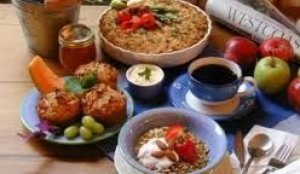
All iLive content is medically reviewed or fact checked to ensure as much factual accuracy as possible.
We have strict sourcing guidelines and only link to reputable media sites, academic research institutions and, whenever possible, medically peer reviewed studies. Note that the numbers in parentheses ([1], [2], etc.) are clickable links to these studies.
If you feel that any of our content is inaccurate, out-of-date, or otherwise questionable, please select it and press Ctrl + Enter.
How to eat during the session to show a good result
Last reviewed: 01.07.2025

Scientists' research has proven that intellectual abilities depend on the quality of nutrition. It is especially important for students to follow a proper diet. The exam session at an educational institution places increased demands on students' performance and mental activity. How should you eat during exams to show a good result?
Avoid irrational and irregular nutrition, "snacks" on the go and fast food, such as pizza and a bottle of Coca-Cola. Such a diet, of course, allows you to save time, but does not help maintain the body in working condition.
Try to exclude meat products and sugar from your menu during the control training events. Food should be high in calories, but light. Eating sugar and products that contain it leads to a short-term increase in intellectual abilities, because sugar immediately rushes into the blood. But this effect quickly passes, because insulin, which “devours” sugar, is soon released into the blood, and after a few minutes its level in the blood decreases.
In the morning, choose a moderate meal that includes bread, rice, beans, muesli and nuts. These products contain polysaccharides that are released more slowly than sugar. In 15-20 minutes, you will feel fresh and alert. If you have mental work ahead, it is much more useful to have a small bun than a candy.

Make sure that your student diet includes plant proteins. They are found in the right quantities in peas and beans. They can be added to various dishes in reasonable quantities.
Include vitamins and minerals in your food. These components of nutrition contribute to better processes in the brain. The need for vitamins is higher, the more difficult the mental work you have to do. The two main elements that a student needs are B vitamins and iron. These elements are found in cereals, apples and spinach.
Fulfil the main condition – set the right diet for yourself during the session. Try not to overeat, especially at the end of the day and before mental workload. Active digestion of food leads to an influx of blood to the digestive system and, accordingly, its outflow from the brain. After a hearty meal, intellectual activity usually slows down.

 [
[